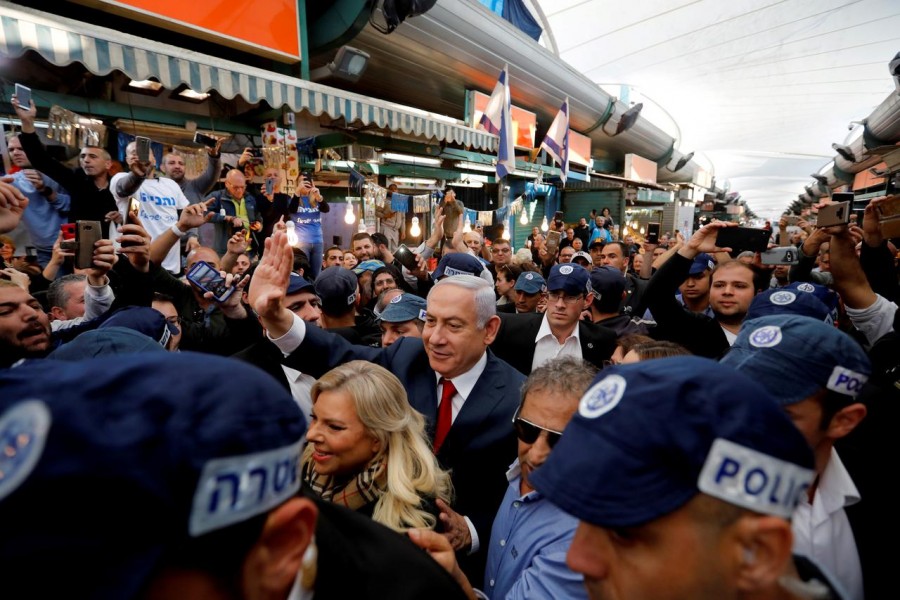Israelis have begun voting in the country's most closely-fought general election in years.
Prime Minister Benjamin Netanyahu, leader of the right-wing Likud Party, is seeking a fifth term in office.
But he is facing corruption allegations and a strong challenge from retired general Benny Gantz.
Mr Gantz, head of the centrist Blue and White alliance, is challenging Mr Netanyahu on the key issue of security and is promising cleaner politics.
No party has won a majority in Israel's 120-seat parliament, the Knesset, so as soon as the results start coming in at 22:00 (19:00 GMT) on Tuesday negotiations start on the formation of a governing coalition.
At a rally in Jerusalem on Monday, Mr Netanyahu told Likud supporters not to be "complacent" and urged them to turn out at polling stations.
He warned that his "leftist" rivals could still win.
A BBC report says Mr Netanyahu has appealed to Israel's increasingly right-wing voter base with tough messages on security and a significant announcement in the final days suggesting a new government would annex Jewish settlements in the occupied West Bank.
The settlements are considered illegal under international law, although Israel disputes this.
Mr Netanyahu has faced an uncomfortable election race, dogged by looming corruption charges, and a flare-up in the conflict with Palestinian militants in the Gaza Strip.
The prime minister denies the corruption allegations, and says he is a victim of a political "witch-hunt" aimed at influencing the election.
Mr Gantz told Blue and White supporters in Tel Aviv that the prime minister wanted to change the law to protect himself from prosecution.
"The whole purpose is to create a legal fortress to guarantee his legal immunity in front of the serious charges he is facing," he said.
Final pre-election polls suggested the two main contenders were neck-and-neck, with both set to win 30 seats.
But in Israel's fragmented party system the advantage remains with Mr Netanyahu, who still looks most likely to be able to form a new coalition government.
In a widely criticised move to lock down extra right-wing seats, Mr Netanyahu brokered a deal in February making it easier for candidates from an extreme-right wing party that many view as racist to enter parliament.


